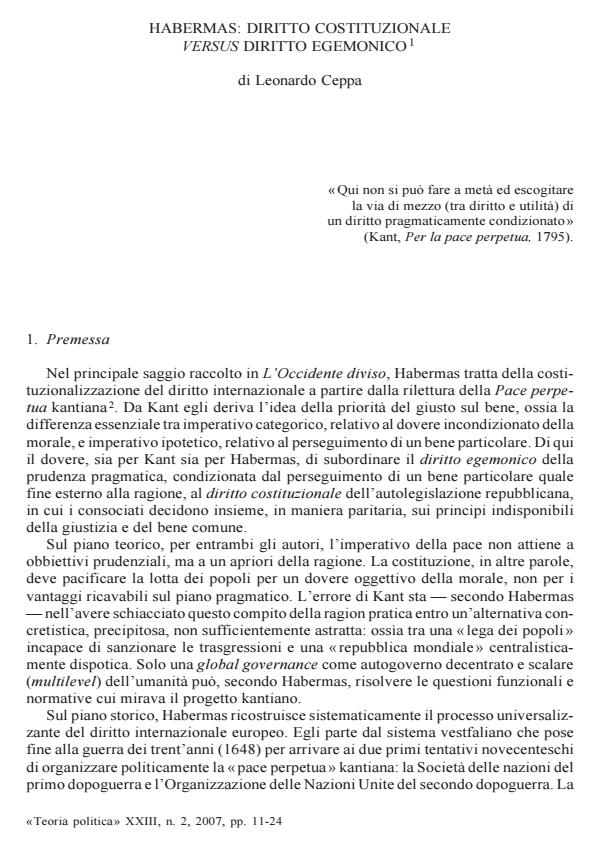Habermas: diritto costituzionale versus diritto egemonico
Journal title TEORIA POLITICA
Author/s Leonardo Ceppa
Publishing Year 2007 Issue 2007/2
Language Italian Pages 14 P. 11-24 File size 335 KB
DOI
DOI is like a bar code for intellectual property: to have more infomation
click here
Below, you can see the article first page
If you want to buy this article in PDF format, you can do it, following the instructions to buy download credits

FrancoAngeli is member of Publishers International Linking Association, Inc (PILA), a not-for-profit association which run the CrossRef service enabling links to and from online scholarly content.
In his prominent essays collected in The Divided West, Habermas addresses the constitutionalization of international law through the lenses of his original interpretation of Perpetual Peace by Immanuel Kant. From Kant, he adopts the idea of the primacy of the right over the good. Namely, the essential difference between the categorical imperative, concerning an unconditional moral duty, and the hypothetical imperative, concerning the pursuit of a particular privilege. What emerges for both Kant and Habermas is the duty to subordinate the hegemonic law of pragmatic common sense, which is conditioned by the pursuit of a particular privilege external to universal goals, to the constitutional law of a republican self-government, where citizens decide jointly, in an equalitarian way, over inalienable principles of justice and common good.
Leonardo Ceppa, Habermas: diritto costituzionale versus diritto egemonico in "TEORIA POLITICA" 2/2007, pp 11-24, DOI: